
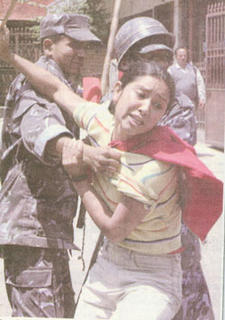
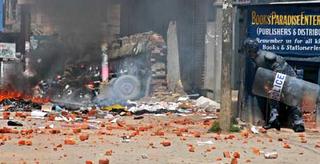

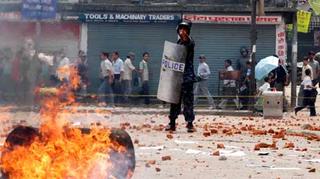
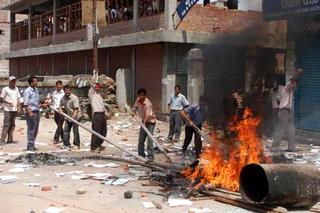

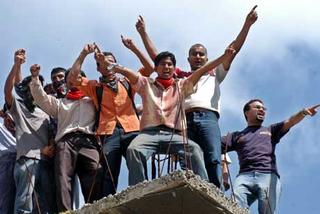
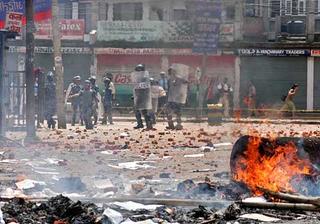
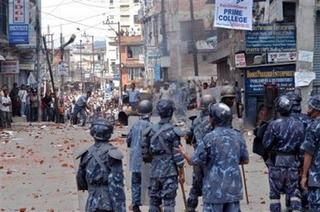

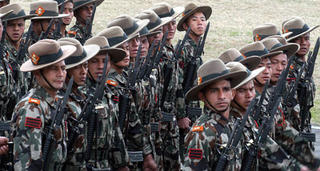
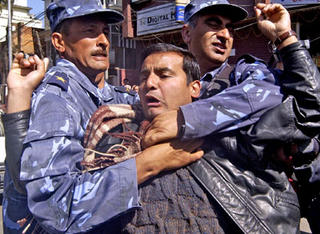
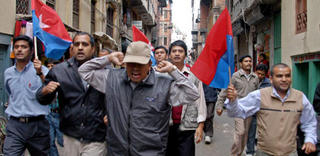
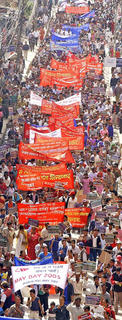
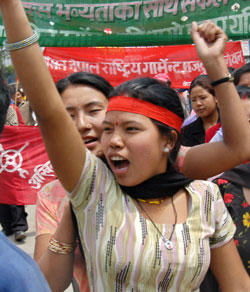
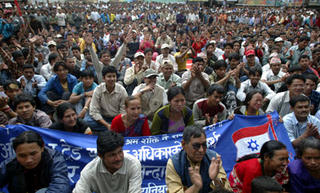
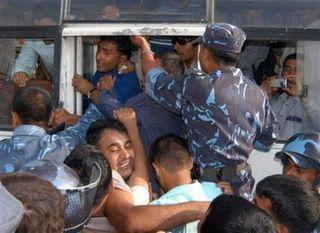
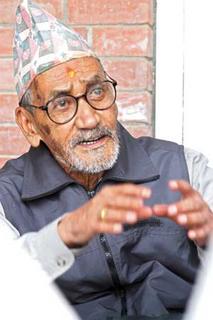
The only full timer out of the 200,000 Nepalis in the US to work for Nepal's democracy and social justice movements in 2005-06.



 Gagan Thapa : Urgent action filed at UN
Gagan Thapa : Urgent action filed at UN Working Group on Arbitrary Detention
c/o. Office of the UN High Commissioner for Human Rights
United Nations Office at Geneva
CH-1211, Geneva 10 , Switzerland
Subject: Urgent Action
Dear Madam/ Sir
I, Goviinda Prasad Sharma, on his behalf of Gagan Thapa, request the Working Group on Arbitrary Detention to issue an urgent action against His Majesty the King of Nepal under its special procedures.
1. Mr. Gagan Thapa, 30, student leader and former general secretary of Nepal Student Union, was re arrested by plain cloth security personnel on 27th July 2005 at about 9.30 am from Anamnagar Kathmandu. Mr. Thapa was arrested while he and other his colleagues Mr. Ajaya Shivakoti and Mr. Subodh Acharya had gone to meet Mr. Pradeep Poudyal, vice-chairman of Nepal Students’ Union who has been detained at Ward Police Office in Singh Durbar Kathmandu. Mr. Poudyal and five other student leaders have been detained under Public Offence Act. According to Mr. Ajaya Siwakoti, an eyewitnes s, “The plainclothes policemen claiming themselves to be from inquiry branch took him in a police van and taken to the Tinkune Police post Kathmandu.
s, “The plainclothes policemen claiming themselves to be from inquiry branch took him in a police van and taken to the Tinkune Police post Kathmandu.
2. After the royal takeover on 1st of the February, Mr. Thapa was arrested on 22th April, 2005, early morning at 3:30 from the residence of Sandesh Adhikari, a human rights activist. The Supreme Court of Nepal had ordered his immediate release on May 5th 2005. But he was re-arrested immediately after he was made to sign the release note from District Police Office, Kathmandu, Hanumandhoka. The UN representatives, journalists, National and international human right activists were present when police rearrested him. Following that, he was taken to detention centre at Kharipati, Bhaktapur in the same night. And the district administration gave him a 90 days detention order under Public Security act. The government, despite its commitment in international forums to protect the human rights of Nepali people has directly and blatantly disobeyed the order of Supreme Court in the presence of the UN human rights Monitors.
3. 24 May 2005, the Supreme Court justices Min Bahadur Rayamajhi and Arjun Prasad Singh again ordered the government to release Mr. Thapa by producing him b efore the Bhaktapur District Court. Next day he was release as per the strict order of the Supreme Court.
efore the Bhaktapur District Court. Next day he was release as per the strict order of the Supreme Court.
According his family member and eyewitness, he has not been informed about the reason of his arrest. His arrest and detention is illegal and is against the provision of the international instruments which Nepal is party to. After the 1st of the February, the National protection system remains no longer independent and his previous case is a prominent example of non compliance of Courts Order by state agencies. In such a sudation there is strong fear of torture and false accusation to Mr., Thapa. Therefore I would like to urge to Working Group to intervene by issuing an Urgent Action against His Majesty the King, since he is the executive officer of the kingdom.
Govinda Prasad Sharma.
Advocate
Supreme Court of Nepal.
Govinda Sharma “Bandi”
Advocate, Supreme Court of Nepal
Research Partner
DCISM, Copenhagen-DK
Telephone- +45 3269883 (office),+45 38384936 (Residence)+45 24472265(Mobile)
Source: INSN
In The News
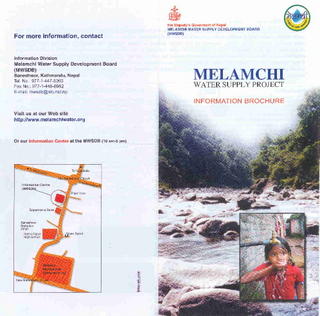
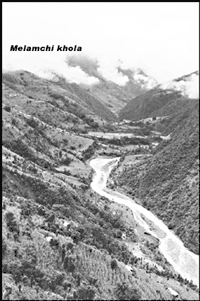 r and critical component of the Project is construction of a 26.6 km tunnel that will convey water from the Melamchi River into the Kathmandu Valley for urban water supplies. Work under this contract includes constructing the adit access roads (AAR) Sindhu and Gyalthum (total length 20 km) to provide access to the tunnel adits. Hence, this contract is on critical path to start and complete the construction of the tunnel and consequently for overall implementation of the Project. Although this contract is financed under the OPEC loan, responsibility for implementation is delegated to ADB and procurement shall be conducted in accordance with ADB’s procurement guidelines.
r and critical component of the Project is construction of a 26.6 km tunnel that will convey water from the Melamchi River into the Kathmandu Valley for urban water supplies. Work under this contract includes constructing the adit access roads (AAR) Sindhu and Gyalthum (total length 20 km) to provide access to the tunnel adits. Hence, this contract is on critical path to start and complete the construction of the tunnel and consequently for overall implementation of the Project. Although this contract is financed under the OPEC loan, responsibility for implementation is delegated to ADB and procurement shall be conducted in accordance with ADB’s procurement guidelines. his difference may have given room for collusion.
his difference may have given room for collusion.